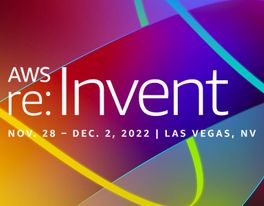In today’s constantly evolving and fast-paced business environment, it is crucial to have the appropriate digital tools to keep up. Cloud technology is one of these tools, but with so many options available, navigating the commercial landscape within the cloud can be daunting. Additionally, each cloud provider has a range of billing options, making it challenging to choose the best one for your needs. This blog aims to simplify the technical terminology and assist you in selecting the ideal cloud service for your business.
Microsoft Azure
Let’s start by first looking at Microsoft Azure. Azure offers several agreement types with a similar monthly rolling billing structure (OPEX). When enterprise agreements were phased out for corporate customers in January 2020, it left many customers uncertain which agreement they should adopt.
The Cloud Solution Provider (CSP) Agreement is a monthly rolling agreement between customers and a Value-Added Reseller (VAR) that is not contractually binding. One key feature is that you are charged only for what you consume. This means there is no upfront or minimum commitment, and if a customer decides to spin down their resources at any point, it would not be a problem.
CSP is also a multi-tenant agreement meaning multiple tenants can be aligned to the CSP agreement. This makes it very easy from a management perspective, as customers do not need multiple agreements if they have multiple tenants.
Expanding on this management aspect further, CSP customers will get access to two portals. The first is the Azure portal, where customers can construct and deploy resources, align roles, and examine detailed cost analyses. Additionally, customers can access Softcat's eCAT e-commerce platform, which allows them to align tenants, create subscriptions, and view data charts. Support tickets can also be raised through this platform. Opting for Softcat for CSP billing also grants customers access to our in-house 24/7 technical support.
Additionally, let’s delve into Azure in the context of the public sector space.
Public sector customers get more options available with Azure, as whilst Enterprise Agreements went end of life for corporate customers, they remain available for the public sector, which means they can take advantage of the CAPEX model.
Enterprise agreements are contractual agreements between the customer, Microsoft, and a partner such as Softcat. The agreement term typically lasts 1-3 years, and customers are required to make an upfront commitment. The level of commitment required varies based on the enrolment option chosen, and it must be used before the time anniversary, or the money is forfeited. While technical support is obtained directly through Microsoft, Softcat is there for day-to-day queries as well as more strategic conversations related to customers' Azure environments, where we can leverage our in-house expertise on migration, landing zones, and health and security reviews.
AWS
Moving onto the next cloud provider, AWS. We seek to support customers with two billing methods: the Enterprise Discount Program (EDP) And AWS Platform Service.
Starting with EDPs, which are designed for larger customers, with a minimum annual spend of $500,000.00. The EDP enables customers to trade committed spending for discounts by signing a contract that ranges from 1-5 years. An EDP provides a valuable advantage by allowing customers to reduce their commitment using AWS Marketplace spend. This flexibility to allocate up to 25% of their EDP for Marketplace spend is a key benefit that customers can leverage.
Utilising Softcat for EDPs gives you a whole array of benefits. Regarding the Marketplace aspect, we have dedicated in-house AWS Marketplace specialists who focus on the commercial part of Marketplace. Leveraging our strong relationships with ISVs, our Marketplace specialists work towards securing you the best commercial offers and discounts.
Another benefit is gaining access to the Cloud Health platform. Powered by VMware, Cloud Health gives customers more comprehensive insights into governance, security, advanced cost optimisation and reporting allowing them to gain a much deeper understanding of their environment than they would gain from the AWS Console.
With Softcat being the partner aligned to the EDP, we are also an extra layer of support between the customer and AWS. Not only can we support customers in building that relationship with AWS we can also take it a step further and assist with those more strategic elements. We have in-house capabilities that allow us to support customers with migrations and assessments of their environments.
Moving our focus away from committed agreements, Softcat also supports monthly billing via our AWS platform service. This service is aimed at customers who prefer monthly billing charges based on usage. Customers will use the AWS console to deploy resources and, similar to the EDP customers, gain access to our Cloud Health platform, which provides extensive insights into cost optimisation, security and governance reporting. Additionally, customers will benefit from our Marketplace specialists, who will support the Marketplace procurement and ensure they receive the best commercial offers. Our billing support also includes technical support, which can be raised through the AWS console.
GCP
Lastly, let's turn our attention to GCP. Lately, we have been building out our GCP business to better support customers in this space. With our GCP billing platform, we can now onboard customers and bill them monthly for their consumption. Customers will use the Google Cloud Console to deploy resources and gain access to the SIE billing platform. This platform provides FinOps dashboards that focus on costs and can be filtered down to meet the customer's requirements. The reporting function enables customers to generate reports based on their filtered data. In addition, a basic free technical support package is included for customers, with the option to upgrade to a higher tier if required.








